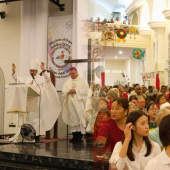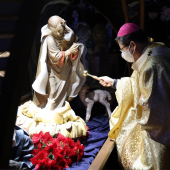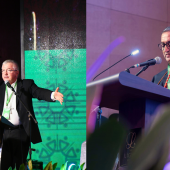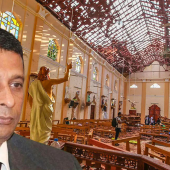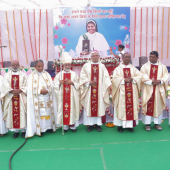KL Archdiocesan Communications Ministry Shares Bishops’ Warnings on Naju Shrine
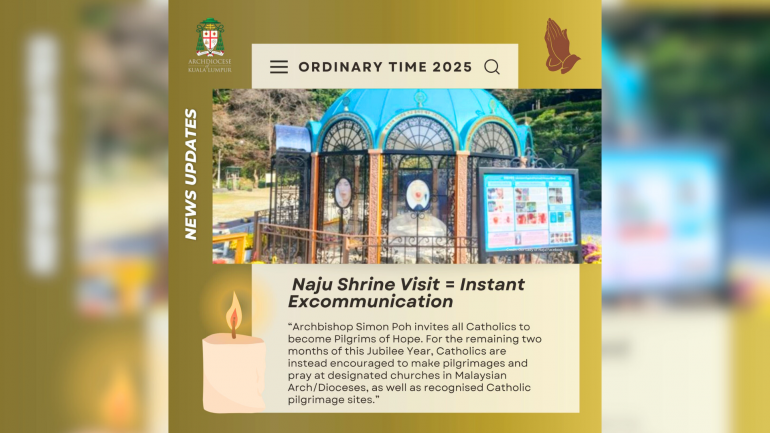
In its Facebook post on November 11, the Social Communications Ministry of the Archdiocese of Kuala Lumpur shared reports that Catholic bishops, including Archbishop Simon Poh of Kuching, Sarawak, and Church leaders in Singapore, had issued warnings against visiting the unapproved Marian shrine in Naju, South Korea, noting that such visits “lead to automatic excommunication.”
This shrine, which focuses on alleged visions experienced by Julia Kim since 1985, has been consistently condemned by the Archdiocese of Gwangju, and the Vatican’s Dicastery for the Doctrine of the Faith has reaffirmed the ban, citing false teachings and unauthorized sacramental celebrations, the post noted.
On November 4, Today’s Catholic, the official publication of the Archdiocese of Kuching, reported that Archbishop Simon Poh, after receiving inquiries from Catholics about joining pilgrimages to Naju, contacted Archbishop Emeritus Hyginus Kim of Gwangju, who confirmed that the Archdiocese of Gwangju does not permit Catholics to visit Naju.
On October 31, the Archdiocese of Singapore’s Chancery Office warned that “those who continue to visit the center in Naju, where the alleged visionary continues her activities against the guidelines of the local Ordinary in Korea, incur an automatic (latae sententiae) excommunication.”
The Kuala Lumpur post also included the appeal of Archbishop Simon Poh of Kuching, inviting all Catholics “to become “Pilgrims of Hope.” For the remaining two months of this Jubilee Year, Catholics are encouraged instead to make pilgrimages and pray at designated churches in Malaysian Arch/Dioceses, as well as at other recognized Catholic pilgrimage sites.”
Radio Veritas Asia (RVA), a media platform of the Catholic Church, aims to share Christ. RVA started in 1969 as a continental Catholic radio station to serve Asian countries in their respective local language, thus earning the tag “the Voice of Asian Christianity.” Responding to the emerging context, RVA embraced media platforms to connect with the global Asian audience via its 21 language websites and various social media platforms.









